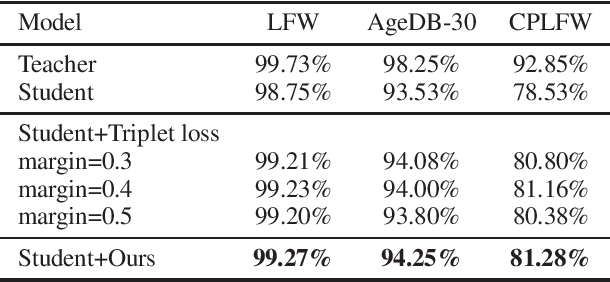Triplet Distillation for Deep Face Recognition
Paper and Code
May 19, 2019

Convolutional neural networks (CNNs) have achieved a great success in face recognition, which unfortunately comes at the cost of massive computation and storage consumption. Many compact face recognition networks are thus proposed to resolve this problem. Triplet loss is effective to further improve the performance of those compact models. However, it normally employs a fixed margin to all the samples, which neglects the informative similarity structures between different identities. In this paper, we propose an enhanced version of triplet loss, named triplet distillation, which exploits the capability of a teacher model to transfer the similarity information to a small model by adaptively varying the margin between positive and negative pairs. Experiments on LFW, AgeDB, and CPLFW datasets show the merits of our method compared to the original triplet loss.
 Add to Chrome
Add to Chrome Add to Firefox
Add to Firefox Add to Edge
Add to Edge